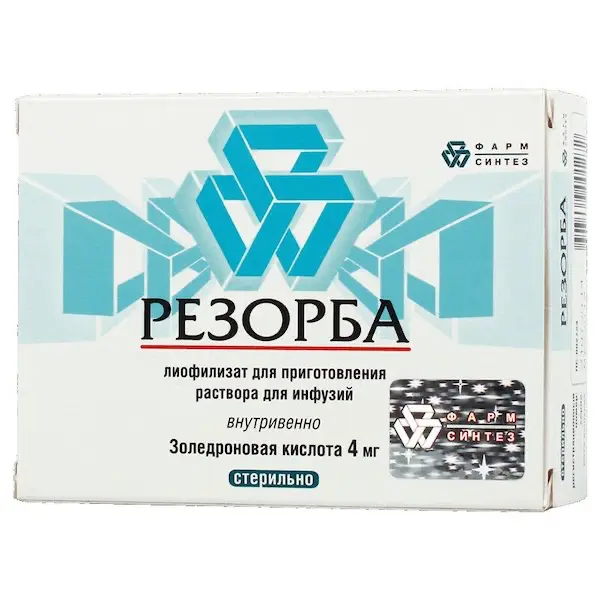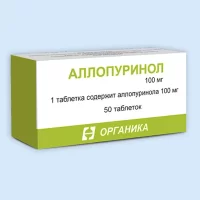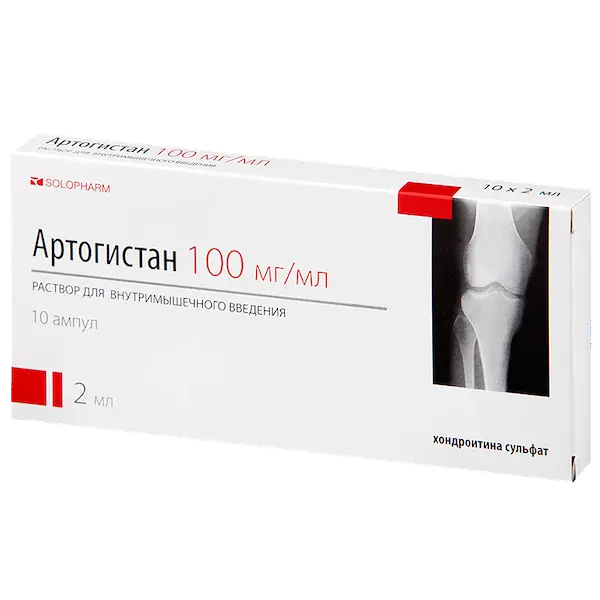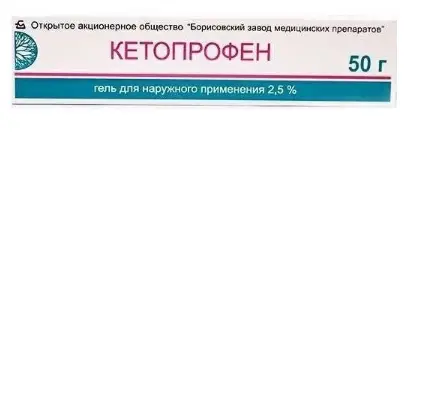Description
Resorba Pharmacodynamics
Resorba belongs to a new class of highly effective bisphosphonates with selective action on bone tissue. It inhibits osteoclast activity, has no undesirable effects on bone tissue formation, mineralization and mechanical properties. The selective action of bisphosphonates on bone tissue is based on their high affinity for mineralized bone tissue, but the exact molecular mechanism providing inhibition of osteoclast activity is still unknown. It also has direct antitumor properties that provide efficacy in bone metastases.
In vitro it was found that zoledronic acid, by inhibiting cell proliferation and inducing cell apoptosis, has a direct antitumor effect on myeloma and breast cancer cells, reducing their risk of metastasis. Inhibition of osteoclast resorption of bone tissue, which changes bone marrow microenvironment, leads to reduction of tumor cell growth; anti-angiogenic and anti-tumor activity is noted.
Zoledronic acid also inhibits proliferation of human endothelial cells. In tumor-induced hypercalcemia, it reduces the serum calcium concentration.
Indications
Osteolytic, osteoblastic and mixed bone metastases of solid tumors; osteolytic foci in multiple myeloma.
Hypercalcemia caused by malignancy.
Postmenopausal form of primary osteoporosis
Senile form of primary osteoporosis
Secondary osteoporosis
Contraindications
Hypersensitivity to zoledronic acid, other bisphosphonates or any other ingredients of the drug.
Severe renal insufficiency (creatinine clearance < 30 ml/min).
Pregnancy and lactation.
Childhood and adolescence (safety and efficacy of use have not been established).
Dosage and administration method
- Intravenous drip for at least 15 minutes.
- In bone metastases and osteolytic foci in multiple myeloma, the recommended dose is 4 mg, every 3-4 weeks.
- In addition, an oral calcium dose of 500 mg per day and a vitamin D dose of 400 ME per day are recommended.
- In hypercalcemia (calcium concentration corrected for albumin level ? 12 mg/dL or 3mmol/L) due to malignancies, the recommended dose is 4 mg, once. The infusion is given on condition that the patient is adequately hydrated.
- In postmenopausal and senile forms of primary osteoporosis, to increase bone mineral density and prevent fractures of vertebral bodies and other skeletal bones, the recommended dose is 4 mg, once a year.
- If dietary intake of calcium and vitamin D is insufficient, calcium and vitamin D supplementation should be prescribed for patients with osteoporosis. The duration of the drug is determined by the doctor individually depending on the condition of the patient(s) with postmenopausal or senile form of primary osteoporosis.
- In secondary osteoporosis, in order to increase bone mineral density, prevent fractures of vertebral bodies and other skeletal bones, the recommended dose is 4 mg once a year.
- If dietary intake of calcium and vitamin D is insufficient, patients with secondary osteoporosis should additionally be prescribed calcium and vitamin D preparations. The duration of drug administration is determined by the doctor individually, depending on the patient’s condition and the etiology of secondary osteoporosis.





